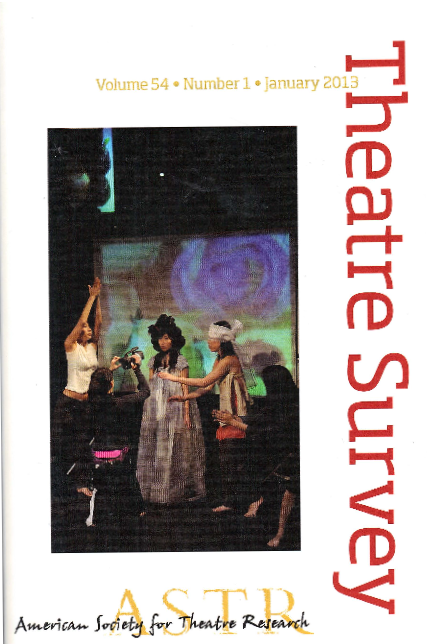Theatre Survey Volume 54, Number 1, January 2013, pp. 51-85.
Nominated for the 2014 Association for Theatre in Higher Education’s Outstanding Article Award
Touring theatre is a place where theatre studies and globalization come into contact. The year of 2012 was a year of global festivities in which Shakespeare’s works played a major part. Through their exemplary power, the intersections of world cultures and Shakespeare provide a set of important issues for repositioning theatre studies in the wider field of globalization studies.
How does Shakespeare make world theatre legible in the British context? What roles have “foreign” performance styles played in the rise of Shakespearean theatre as a “global” genre and to post-imperial British identity in the world? More specifically, what does it entail for international touring theatre artists to perform Shakespeare in Britain and for the British press to judge these touring productions?
Some answers to these questions can be found in the patterns of production and reception of Shakespeare in postnational spaces—festival venues where national identities are blurred by the presence of such entities as transnational corporate sponsors. Some of the touring theatre works in 2012 were produced under circumstances that may prove challenging or alienating to even the most cosmopolitan audiences. Shakespeare in the diaspora puts pressure on some of the theoretical models theatre historians have privileged in their documentation of the Western sources of non-Western performances. In particular, the reception of touring performances is informed by issues of politics, language, and performantive cultural affiliations.
